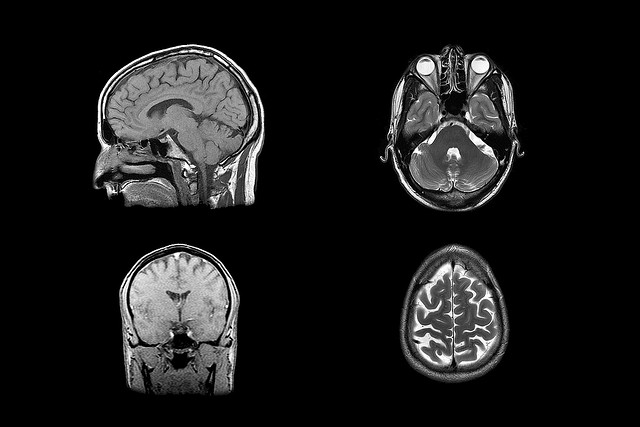The role of stigma for people who are in need of mental health treatment is both profound and devastating. According to a 2011 study by the Association for Psychological Science, only 60% of people diagnosed with mental health problems reported receiving treatment. That means 40% of the millions of people in the U.S. who need professional help are getting no treatment whatsoever. Social stigma, myths and stereotypes play a huge role in limiting both access to care and discouraging people from pursuing mental health treatment. The problem is multifaceted and complex and has a wide-reaching effects on people's education, employment, health, well-being and relationships.
There are many forms of stigma and stereotypes. First, there is a widespread public perception that people with mental illness are dangerous, unpredictable and responsible for their own illness and not deserving of compassion and care. As a result, people in need of help are excluded from jobs, education and much-needed social interaction.
This problem also plays out in the professional medical setting, where negative stereotypes often lead medical providers to be less likely to focus on the patient rather than the disease and to not place the needed focus on recovery and referral for needed consultation and care.
Stigma in society and lack of awareness among medical providers also contributes to what is known as self-stigma. That is: People in need of help believe these stereotypes themselves and develop low self-esteem, which results in denial, attempts to hide problems, alcohol and drug abuse and a sense of hopelessness -- they feel they are unable to recover, so why try? These are the people who make up the 40% not seeking treatment and consultation.
Stigma results in a double problem for many people. They have real underlying symptoms, which lead to an actual disability, while myths and misconceptions lead to stereotypes and prejudice. Too often, people turn against themselves. Depression, for example, has been referred to by mental health professionals as "rage turned inward." This can lead to fear of rejection, isolation and hostile behavior. The result often is that the needed health care system is replaced by the criminal justice system.
How many people incarcerated today have an underlying untreated mental health condition? My guess is most, if not all. These are the people who did not pursue potential life opportunities for themselves but rather pursued illegal drugs or crime out of a sense of low-self-esteem and hopelessness. The overall result is both devastating to them and society as a whole.
Underlying mental health issues also have a huge impact on both healthcare and disability costs for private and public employers, health and disability insurers and both Medicare and Medicaid and the Social Security disability system (SSDI). How many people collecting private or public disability have an underlying, undiagnosed mental health problem? Nobody really knows, but many disability experts believe the number is staggering. The resulting costs to employers, insurers and taxpayers of untreated or undiagnosed mental health issues is in the billions of dollars.
In 2003, I helped conduct an unpublished study for a major U.S. corporation regarding its active employees out of work on full disability with a primary diagnosis of depression. The analysis cross-referenced these employees' disability claim data with their health insurance data base. It was found that 80% of the primary treating providers in the healthcare benefit side had no mention whatsoever of a primary or secondary diagnosis of depression. This means that their primary treating provider or "family doctor" was either unaware of the underlying mental health issues or failed to acknowledge or consider the possibility.
What was not able to be studied in this research was how many workers out on disability or workers compensation for a "bad back" really had an underlying mental health issue. The study did determine the No. 1 and 2 co-morbidities for employees out on disability for depression was musculoskeletal conditions and gastrointestinal conditions. The overwhelming number of medical providers treating and submitting claims for these co-morbidities (80%) had no mention of an underlying mental health issue despite the fact that their patient was out of work on full disability with a primary diagnosis of depression. The healthcare and disability costs of these employees out on full disability with a primary diagnosis of depression was staggering and in the millions just to this U.S. corporation. Because this large employer was self-insured for healthcare, disability and workers' compensation these costs go directly to its bottom line. These costs are then indirectly passed on to corporate customers and the general public purchasing the company's products and needed services.
What needs to be done to address underlying and untreated mental health conditions?
I do not believe any new federal legislation is required at this time. The Affordable Care Act (ACA), the Americans with Disabilities Act (ADA) and the Mental Health Parity Act are all in place to help people receive needed mental healthcare access. There is no reason people should not seek professional help that they need.
As in most complex public health issues, the answer lies in awareness, education, outreach and research dollars. Educating the public is a very difficult task. As we have learned the hard way with overall prejudices, urban myths and misinformation in society, in general educating people can take generations. Medical authorities in leading medical schools and institutions have also stated that documented research and best practices based on evidence-based medicine can take 20 years to filter down to local medical practices, if ever.
People suffering with underlying mental health issues don’t have 20 years to wait for proper referral and treatment. Medical professionals on the front line need to be educated today to ask the right questions with their patients about potential underlying mental health issues and help reassure people that the overwhelming majority of mental health issues can be diagnosed and successfully treated.
As a society we can no longer allow people to hurt themselves or others when treatment is readily available for people who need help because of genetic and other environmental causes that are no fault of their own. How many of our major problems such prejudice and gun violence have a root cause in untreated mental health issues? Maybe all of them.






